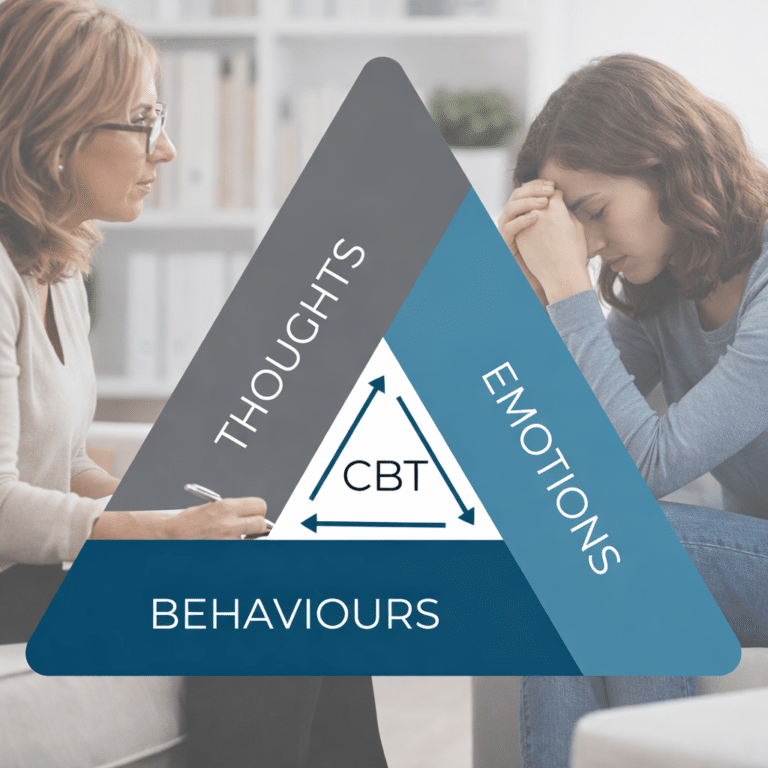Understanding the Struggles of OCD: Why It’s So Hard to Overcome
Maddison Henley PA-C

Obsessive-Compulsive Disorder (OCD) is a mental health condition that affects millions of people worldwide. It is characterized by recurring, intrusive thoughts (obsessions) and repetitive behaviors (compulsions). Despite being a widely-discussed topic, the reasons why OCD is so hard to overcome are often misunderstood. In this blog post, we will delve into the complexities of this disorder and explore why it is such a challenging condition to conquer.
The Vicious Cycle of OCD

Photo by Valeriia Miller on Unsplash
One of the main reasons OCD is so hard to overcome is the self-perpetuating cycle of obsessions and compulsions. When an individual with OCD has an intrusive thought or fear, they feel compelled to perform a certain action in order to alleviate their anxiety. Unfortunately, completing the compulsion only provides temporary relief, and the obsessions return stronger than before. This vicious cycle makes it incredibly difficult for those with OCD to break free from their symptoms. Common cycles include excessive hand-washing due to contamination fears, repeatedly checking things like locks or appliances, and engaging in mental rituals to counteract intrusive thoughts. These cycles often lead to temporary relief, but ultimately perpetuate the anxiety and OCD loop.
The Power of Anxiety
OCD is fueled by anxiety, which can be an incredibly powerful force in one’s life. The fear of something terrible happening or the guilt of causing harm to oneself or others can be overwhelming. Anxiety drives the obsessive thoughts and compulsive behaviors, making it difficult for individuals with OCD to resist engaging in their rituals. Over time, these rituals become a coping mechanism that makes the anxiety seem more manageable. However, this only reinforces the cycle, making it even harder to break free from OCD’s grip.

Photo by Uday Mittal on Unsplash
Stigma and Misconceptions
Unfortunately, OCD is often misunderstood and stigmatized by society. Many people mistakenly believe that OCD is simply about being overly neat or organized. This misconception can make it challenging for those with OCD to seek help, especially with intrusive thoughts related to forbidden or taboo topics, as they may fear being judged or misunderstood.
The lack of understanding and empathy from others can contribute to feelings of isolation and hopelessness, making it even more difficult for individuals with OCD to overcome their condition. Seeking professional help early on is crucial to effectively manage and alleviate such symptoms.

Photo by SIphotography on Unsplash
The Need for Control
At the core of OCD lies a deep-seated need for control. Individuals with OCD often feel a sense of chaos and uncertainty in their lives, leading them to engage in compulsive behaviors to regain a sense of order and control. This need for control can be so strong that it overrides logic and reason, making it difficult for individuals with OCD to let go of their rituals, even when they recognize that their behaviors are irrational.

Photo by Priscilla Du Preez on Unsplash
Treatment Challenges
While there are effective treatments available for OCD, such as cognitive-behavioral therapy (CBT) and medication, finding the right treatment plan can be a challenging process. Oftentimes, antidepressants are the first treatment option utilized for OCD; however, OCD sometimes requires higher doses than other disorders such as anxiety or depression. Some individuals may struggle to find a therapist who specializes in OCD or may not have access to the necessary resources. Additionally, the thought of confronting one’s fears and obsessions can be incredibly daunting, making it difficult for some individuals to fully engage in treatment. It is important to be honest with your mental healthcare team on your symptoms so that they can help formulate a proper treatment plan.
Conclusion
Overcoming OCD is undoubtedly a challenging journey, but it is essential to remember that help is available, and recovery is possible. By understanding the complexities of this disorder and the various factors that contribute to its persistence, we can work towards destigmatizing OCD and providing better support for those who are struggling. If you or someone you know is battling OCD, remember that you are not alone, and seeking professional help is a crucial step towards regaining control of your life.
Animo Sano Psychiatry is open for patients in North Carolina. If you’d like to schedule an appointment, please contact us.

Photo by Hrant Khachatryan on Unsplash
Responsibly edited by AI
Other Blog Posts in
Animo Sano Psychiatry is open for patients in North Carolina, Georgia and Tennessee. If you’d like to schedule an appointment, please contact us.
Get Access to Behavioral Health Care
Let’s take your first step towards. Press the button to get started. We’ll be back to you as soon as possible.ecovery, together.




